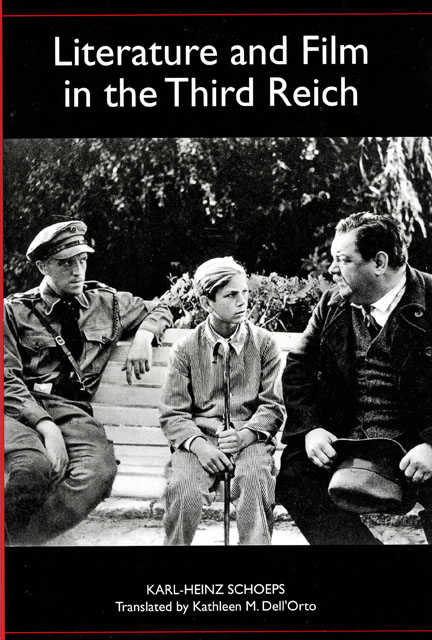Book contents
- Frontmatter
- Contents
- List of Illustrations
- Introduction
- 1 Historical Overview
- 2 The Ideological Context
- 3 Literature and Cultural Policies in the Third Reich
- 4 The National Socialist Novel
- 5 The National Socialist Drama
- 6 National Socialist Poetry
- 7 Film in the Third Reich
- 8 Non-National Socialist and Anti-National Socialist Literature
- 9 Closing Comments
- Biographical and Bibliographical List of Authors
- Selected Bibliography
- Translator’s Note
- Index
2 - The Ideological Context
Published online by Cambridge University Press: 01 March 2023
- Frontmatter
- Contents
- List of Illustrations
- Introduction
- 1 Historical Overview
- 2 The Ideological Context
- 3 Literature and Cultural Policies in the Third Reich
- 4 The National Socialist Novel
- 5 The National Socialist Drama
- 6 National Socialist Poetry
- 7 Film in the Third Reich
- 8 Non-National Socialist and Anti-National Socialist Literature
- 9 Closing Comments
- Biographical and Bibliographical List of Authors
- Selected Bibliography
- Translator’s Note
- Index
Summary
AS TO BE EXPECTED, the literature of the Third Reich reflects its ideology; in contrast to the “manic democratic egalitarianism” of the Weimar Republic, the ideology is founded on völkisch national Germanness, hero worship, and the leader principle. However, Klaus Vondung rightly points out that National Socialist literature cannot be defined any more exactly than can National Socialism itself: “National Socialism is not a clearly defined entity.” National Socialist literature and National Socialist ideology cannot be cleanly separated from each other because there is a mutual dependence between the two: the literature influences, indeed, forms the ideology, and vice versa. National Socialist literature reflects the lack of consistency of the ideology, for National Socialist ideology is “not a clearly defined system but rather a conglomerate of disparate elements,” that is, völkisch and anti-Semitic, nationalistic and conservative, social revolutionary, anti-liberal, antidemocratic, and anti-capitalistic elements.
The Nazis often succeeded in exploiting the various movements for their purposes, with open or secret approval, but at times also against the will of individual representatives of these ideologies. One need only remember the conservative resistance to the Nazis and Hitler that reached its culmination in Stauffenberg's assassination attempt on July 20, 1944. Ironically, Stauffenberg had led the torch procession in Hitler's honor in his garrison on January 30, 1933. Ernst Jünger is another example of Nazi exploitation. Although Jünger rejected National Socialism his war journal In Stahlgewittern (In Storms of Steel) fit well into Nazi ideology and went through twenty-six printings for a total of 244,000 copies. The experience of Arthur Moeller van den Bruck, the prophet of the Third Reich, was not much different; he refused Hitler's offer of collaboration, but by 1935, 130,000 copies of his main work, Das Dritte Reich (The Third Reich), which was first published 1923, had already been printed. Hitler had the Conservative Revolutionary and publicist, Edgar J. Jung, who had propagated numerous Nazi ideas in his main work Die Herrschaft der Minderwertigen (The Rule of Inferior Beings, 1927), murdered on June 30, 1934, in the course of the Röhm putsch. Jung was an opponent of Hitler and his comrades, but claims that he and the Conservative Revolution had really made Hitler's assumption of power possible.
- Type
- Chapter
- Information
- Literature and Film in the Third Reich , pp. 15 - 34Publisher: Boydell & BrewerPrint publication year: 2010



